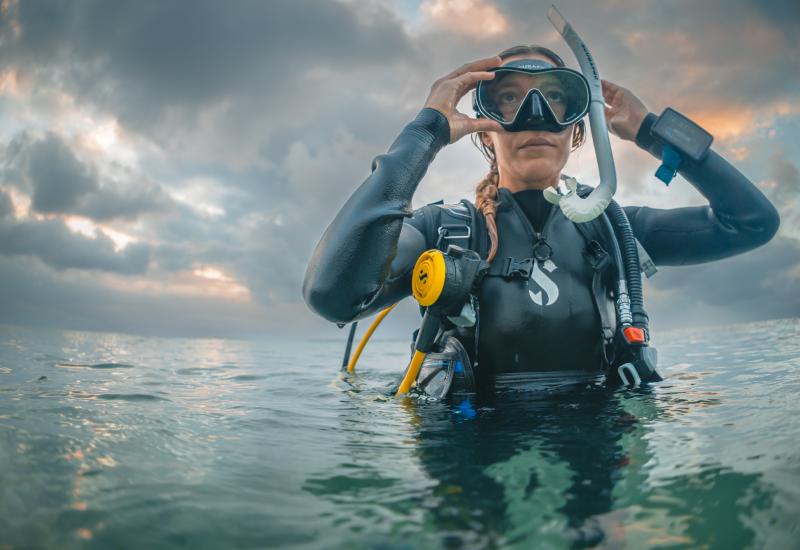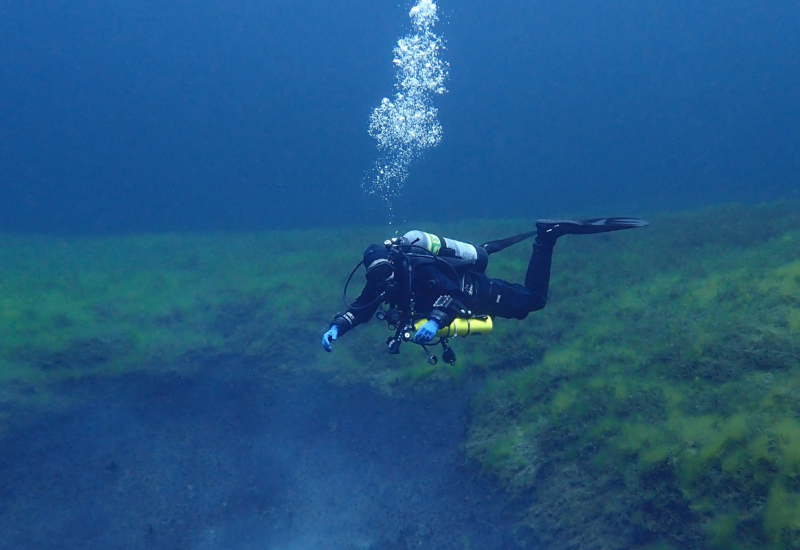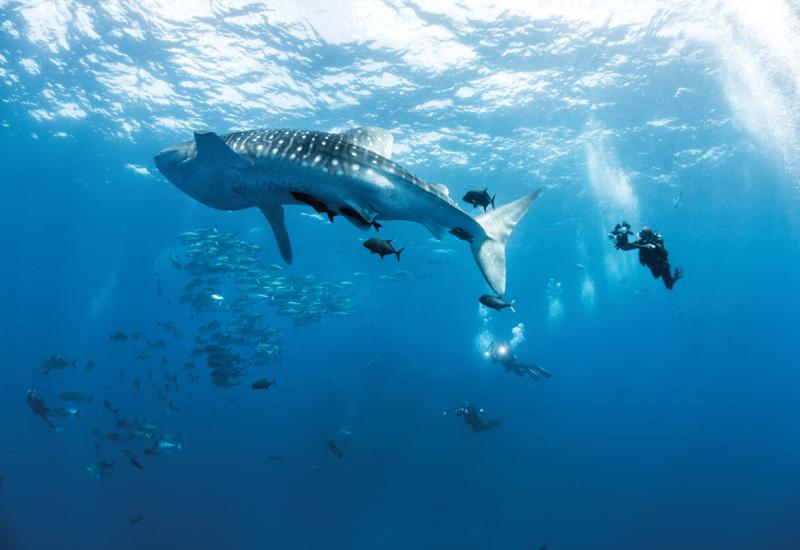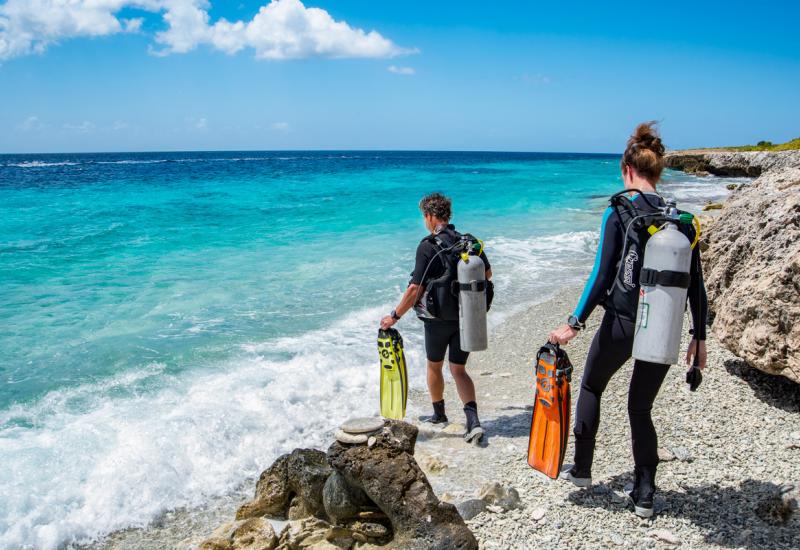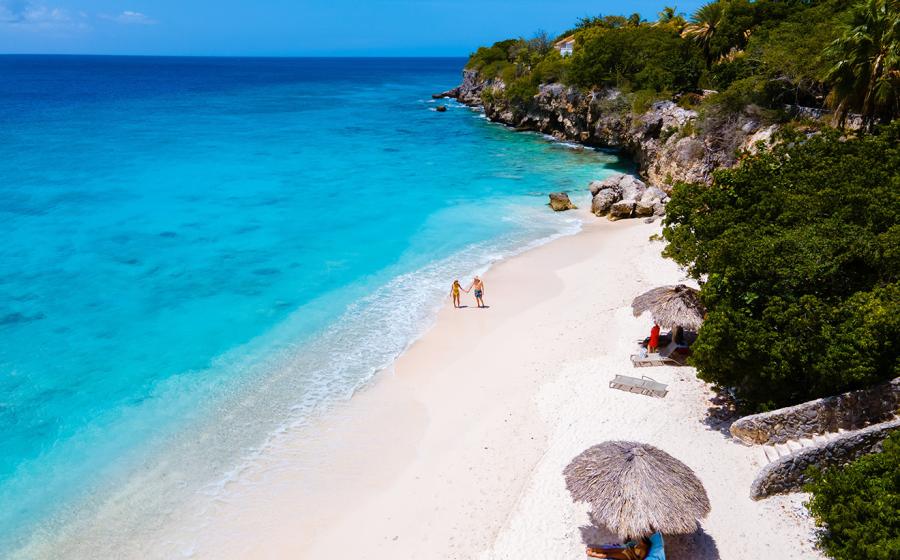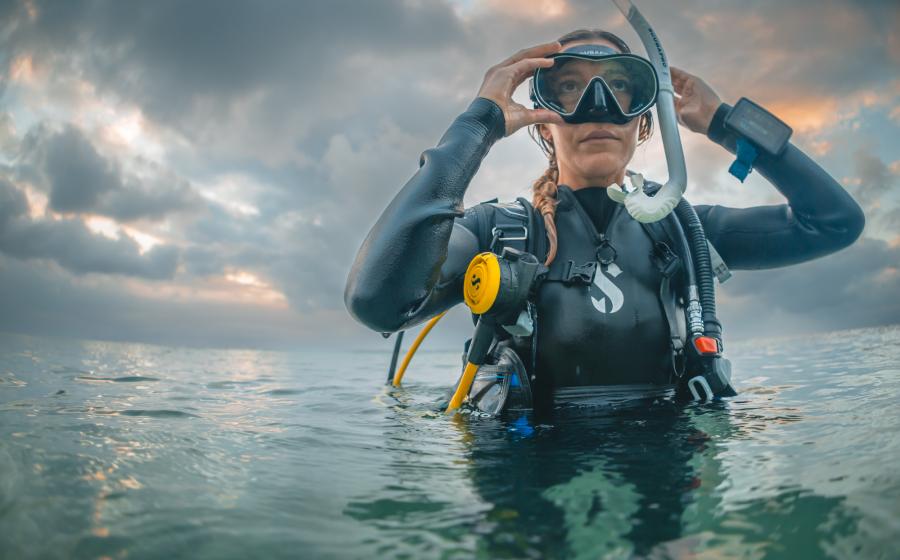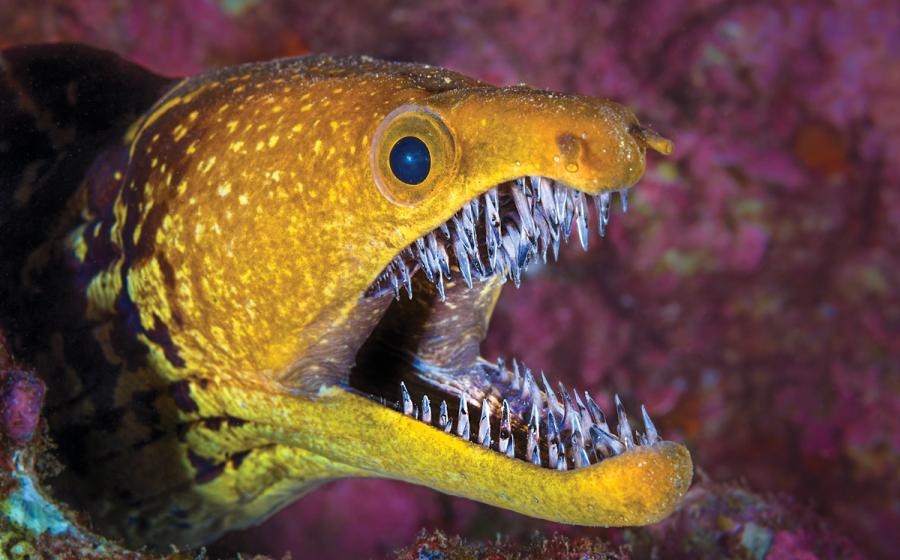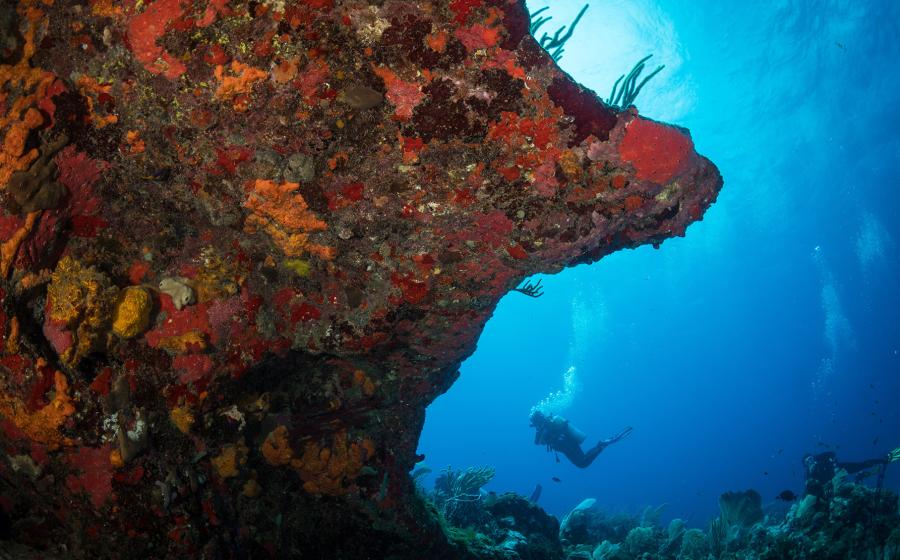Diving After DCS
Was there really ever any doubt that I would dive again?! OK — honestly — yes, there were a few doubts and obstacles along the way, but I was on the verge of a new career in marine conservation that would require a lot of bottom time. Diving wasn't just a recreational experience for me, it was a big part of my life that I wasn't willing to give it up without a fight, even though some of the caring people in my life thought I should.

Photo by Patricia Warner
While I felt determined to get back in the water, the lack of a clear explanation for my DCS incident prompted me to look into possible causes before I made another giant stride. My doctor suggested a simple cardiac Doppler test make sure I didn't have a patent foramen ovale (PFO), a minor hole between the left and right side of the heart that many people have without incident, but that can possibly increase the risk of DCS. The test didn't show anything, and while more exhaustive tests like an echocardiogram could have definitively verified the absence of a PFO, my doctor and I decided it was an unnecessary expense.

Photo by Jenn Loder
Three months after the incident, my doctor gave me the go-ahead to get back in the water, and I went back to where it all started--Provo, Turks and Caicos. The first trip out was nerve-wracking. Feeling extremely cautious and slightly paranoid, I noticed and questioned every sensation. Was that a pain in my shoulder? A tingle in my arm? The debate in my head between the cautious, hyper-sensitive and just plain made-up sounded like all out war. Questions and worries filled my mind, but I soon gave in to the calmness of the reef... at least for a few minutes. Just to be safe, I only did one dive that first day. Of course, the worries didn't end when I got out of the water. All afternoon and through the night my head was busy analyzing each physical sensation and trying desperately to sort out the reality. Overall, the psychological mind games that I forced upon myself proved the hardest part about getting back in the water.
During my trip I completed a course on advanced Nitrox, which allowed me to dive using Nitrox blends up to 100 percent oxygen (regular Nitrox certifications only allow for blends of 36 percent or less). For the next year I not only dived Nitrox using air tables, but I also exchanged my regular tank for an 80 percent oxygen stage tank during my safety stop and ascent in order to reduce my body's accumulated nitrogen. It was a very conservative approach that might not appeal to everybody, but it made me feel more comfortable knowing I was taking every step to limit my chances for another case of DCS. However, that said, the stage tank was one more piece of equipment and hassle, often complicating dive trips because of the difficulty of traveling with oxygen and the hesitation of trip leaders and captains to assume the responsibility of someone using a somewhat technical dive practices. Dive leaders and boat captains unfamiliar with these practices often seemed hesitant to take on the possible complications due to the higher risk of oxygen toxicity from using high oxygen gas blends and/or possible accidents associated with blending highly flammable gas mixtures. Luckily, I had a few great local dive shops, some amazingly patient and fantastic dive leaders and couple of understanding boat captains that put up with my demands. I often had to explain the extra gear to other divers too, and but it was small price to pay and often led to some pretty interesting conversations. People were genuinely interested in my personal experience. Most just wanted to know what it actually felt like to get bent, but I also got the whole range of responses to my story from, "Woah, you are absurdly safety-cautious" to "That's great that you'll do whatever it takes to get back in the water".

Photo by John Loder
Two and a half years and more than 100 dives since my incident, I have enjoyed many dive trips where the only pain I felt came from getting out of the water to return home. I ditched the stage tank due to the hassle, expense and lack of any problems related to my initial DCS event, but I still follow ultra-conservative dive plans, exercise caution about multiple days of diving, make extra long safety stops and drink tons of water. Many divers think "it" will never happen to them--I certainly didn't expect it--but I am living proof that it can happen. While I'm often frustrated that there was no satisfactory explanation for what happened, especially when I see people engage in risky diving practices with no repercussions, in the end it has made me a better, more aware and more knowledgeable diver.
I have been told that the circumstances, or lack thereof, surrounding my DCS hit--and the fact that I have been bent at all--do make a repeat incident more likely. If that does happen, I may have to toss in my fins for good. I don't want to face that unbearable consequence, so I am bound and determined to take every possible precaution. I've learned the value of diving with people you trust and the importance of paying attention to your intuition and body. I still have trouble deciphering the real from the invented and constantly question little aches and pains, but I feel confident in my decisions. Even if that means shorter, shallower, more conservative dives--or sometimes no dives at all--it's worth it to go out again on the next trip.
Was there really ever any doubt that I would dive again?! OK — honestly — yes, there were a few doubts and obstacles along the way, but I was on the verge of a new career in marine conservation that would require a lot of bottom time. Diving wasn't just a recreational experience for me, it was a big part of my life that I wasn't willing to give it up without a fight, even though some of the caring people in my life thought I should.
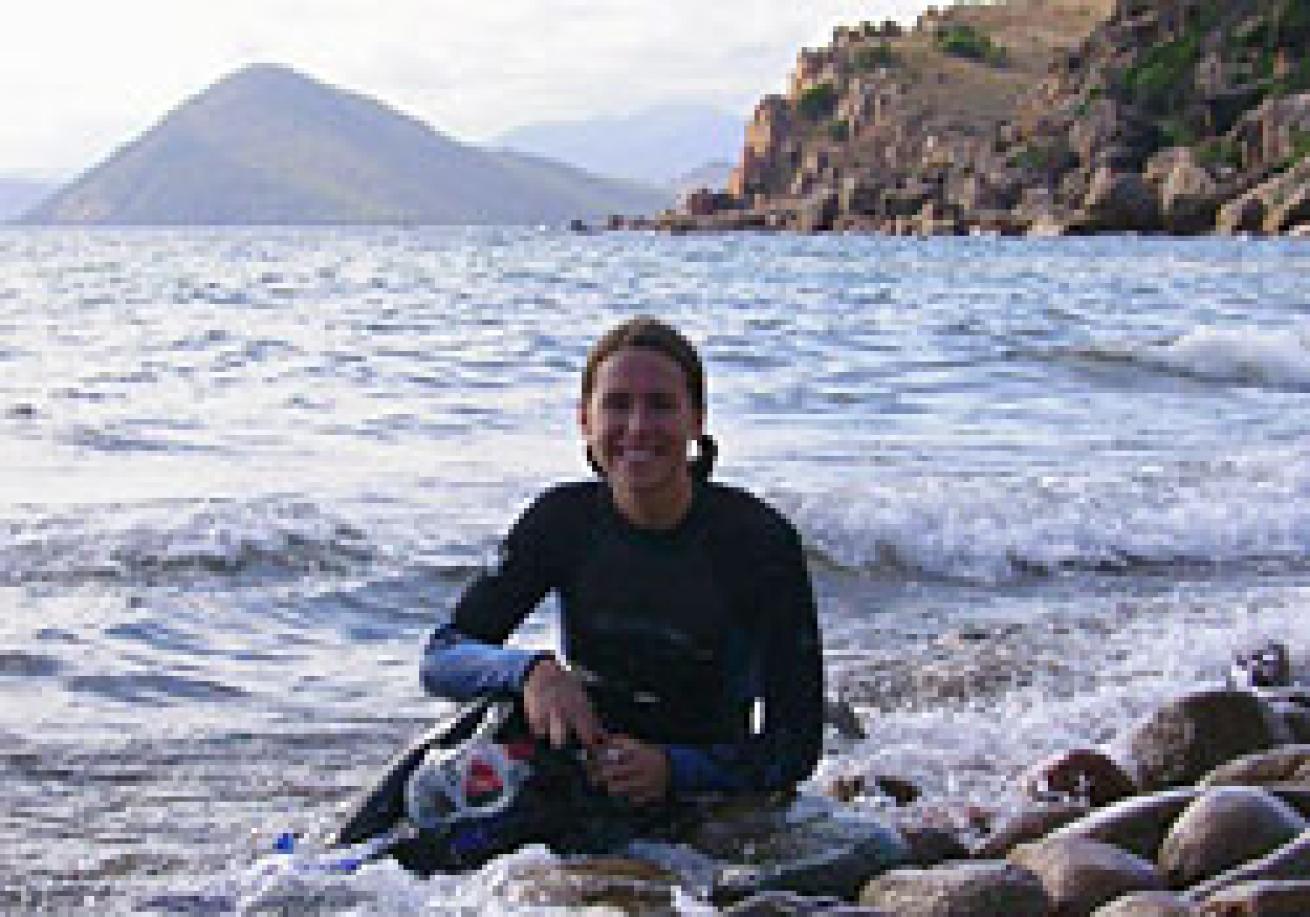
Photo by Patricia Warner
While I felt determined to get back in the water, the lack of a clear explanation for my DCS incident prompted me to look into possible causes before I made another giant stride. My doctor suggested a simple cardiac Doppler test make sure I didn't have a patent foramen ovale (PFO), a minor hole between the left and right side of the heart that many people have without incident, but that can possibly increase the risk of DCS. The test didn't show anything, and while more exhaustive tests like an echocardiogram could have definitively verified the absence of a PFO, my doctor and I decided it was an unnecessary expense.
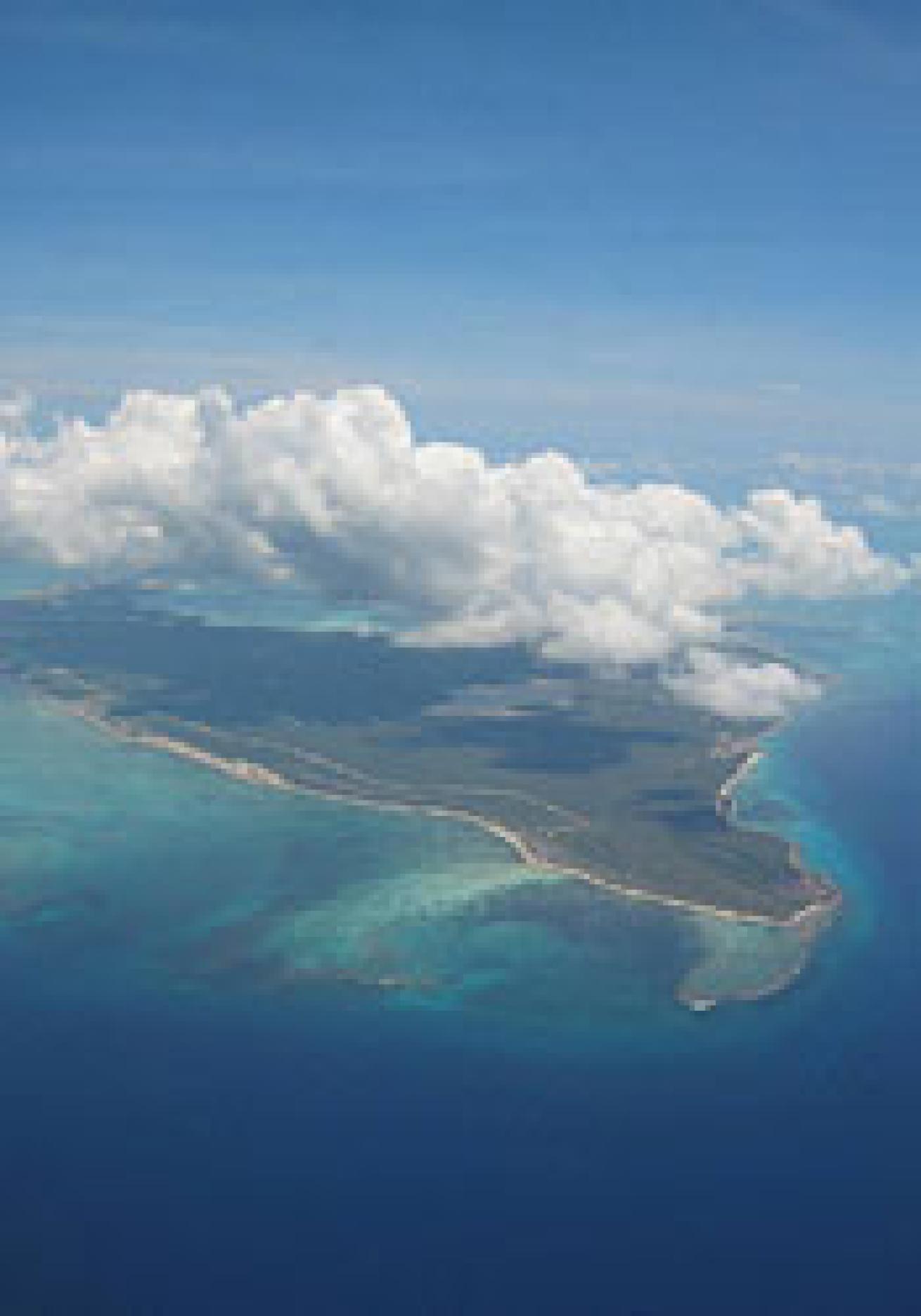
Photo by Jenn Loder
Three months after the incident, my doctor gave me the go-ahead to get back in the water, and I went back to where it all started--Provo, Turks and Caicos. The first trip out was nerve-wracking. Feeling extremely cautious and slightly paranoid, I noticed and questioned every sensation. Was that a pain in my shoulder? A tingle in my arm? The debate in my head between the cautious, hyper-sensitive and just plain made-up sounded like all out war. Questions and worries filled my mind, but I soon gave in to the calmness of the reef... at least for a few minutes. Just to be safe, I only did one dive that first day. Of course, the worries didn't end when I got out of the water. All afternoon and through the night my head was busy analyzing each physical sensation and trying desperately to sort out the reality. Overall, the psychological mind games that I forced upon myself proved the hardest part about getting back in the water.
During my trip I completed a course on advanced Nitrox, which allowed me to dive using Nitrox blends up to 100 percent oxygen (regular Nitrox certifications only allow for blends of 36 percent or less). For the next year I not only dived Nitrox using air tables, but I also exchanged my regular tank for an 80 percent oxygen stage tank during my safety stop and ascent in order to reduce my body's accumulated nitrogen. It was a very conservative approach that might not appeal to everybody, but it made me feel more comfortable knowing I was taking every step to limit my chances for another case of DCS. However, that said, the stage tank was one more piece of equipment and hassle, often complicating dive trips because of the difficulty of traveling with oxygen and the hesitation of trip leaders and captains to assume the responsibility of someone using a somewhat technical dive practices. Dive leaders and boat captains unfamiliar with these practices often seemed hesitant to take on the possible complications due to the higher risk of oxygen toxicity from using high oxygen gas blends and/or possible accidents associated with blending highly flammable gas mixtures. Luckily, I had a few great local dive shops, some amazingly patient and fantastic dive leaders and couple of understanding boat captains that put up with my demands. I often had to explain the extra gear to other divers too, and but it was small price to pay and often led to some pretty interesting conversations. People were genuinely interested in my personal experience. Most just wanted to know what it actually felt like to get bent, but I also got the whole range of responses to my story from, "Woah, you are absurdly safety-cautious" to "That's great that you'll do whatever it takes to get back in the water".
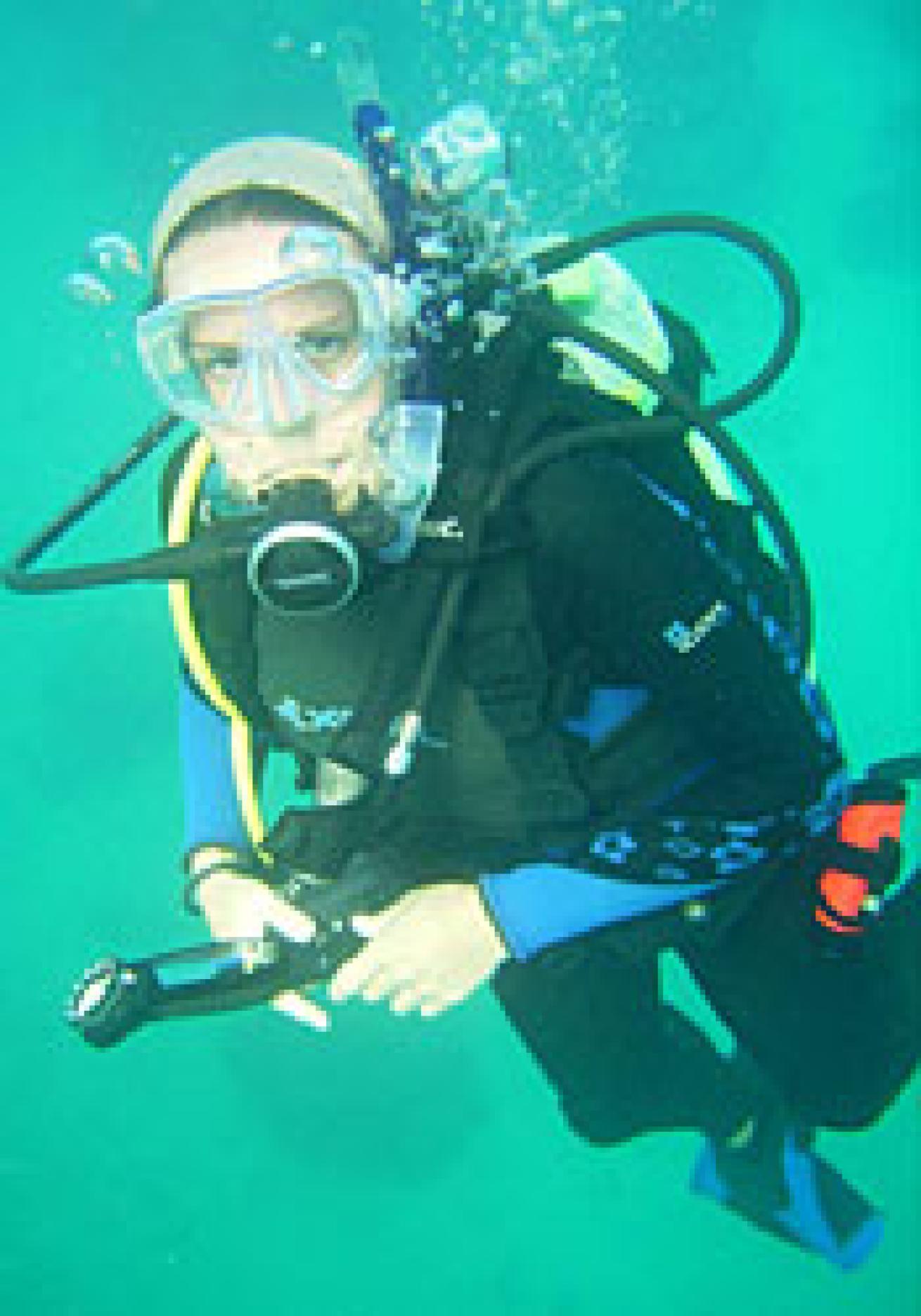
Photo by John Loder
Two and a half years and more than 100 dives since my incident, I have enjoyed many dive trips where the only pain I felt came from getting out of the water to return home. I ditched the stage tank due to the hassle, expense and lack of any problems related to my initial DCS event, but I still follow ultra-conservative dive plans, exercise caution about multiple days of diving, make extra long safety stops and drink tons of water. Many divers think "it" will never happen to them--I certainly didn't expect it--but I am living proof that it can happen. While I'm often frustrated that there was no satisfactory explanation for what happened, especially when I see people engage in risky diving practices with no repercussions, in the end it has made me a better, more aware and more knowledgeable diver.
I have been told that the circumstances, or lack thereof, surrounding my DCS hit--and the fact that I have been bent at all--do make a repeat incident more likely. If that does happen, I may have to toss in my fins for good. I don't want to face that unbearable consequence, so I am bound and determined to take every possible precaution. I've learned the value of diving with people you trust and the importance of paying attention to your intuition and body. I still have trouble deciphering the real from the invented and constantly question little aches and pains, but I feel confident in my decisions. Even if that means shorter, shallower, more conservative dives--or sometimes no dives at all--it's worth it to go out again on the next trip.

